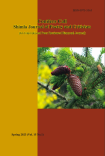Raewyn Alexander’s Ironic Vision in Fat
A poet, publisher, editor, novelist, and actor, Raewyn Alexander, with the publication of her first novel Fat (1996)1 , makes a path breaking entry into New Zealand’s literary world of fiction. With her emerges a new paradigm of women’s writing which is not anti-male, but probably indirectly pities men. Prior to her, no novelist has dealt with the issues related to sex and drug industry, and woman “living off the earnings of a prostitute”(p.52) with so much of boldness.
Recent New Zealand writers are sensitive to issues like domestic violence, sexual abuse, child abuse, racial and ethnic tensions, organized crime, gender politics, domestic violence, family inheritance, Maori identity etc that constantly assailing their society. Raewyn Alexander looks through her mind, memory and senses, perhaps with a veiled sadness, and brings into focus something real, turning inside out. Through Fat she confronts stereotypes and taboos with the grounded evidence of experiences, both awful and inspiring. We see the recognition of self, body as an empowering win-win. The novel pulls the threads of physicality in a variety of directions as to 66 character connections and gaps between bodies, communities and discourses. The sensibility of women is reflected in their dealings with men. The whole idea of the plot of the novel, the logic of the story, which has several strands, ultimately demonstrates that women can be in control of not only their own body but also what always has been under men’s authority. Women here conduct themselves and control men’s sexual conduct and/or behavior.
Queen Sarkar & R. K Singh


